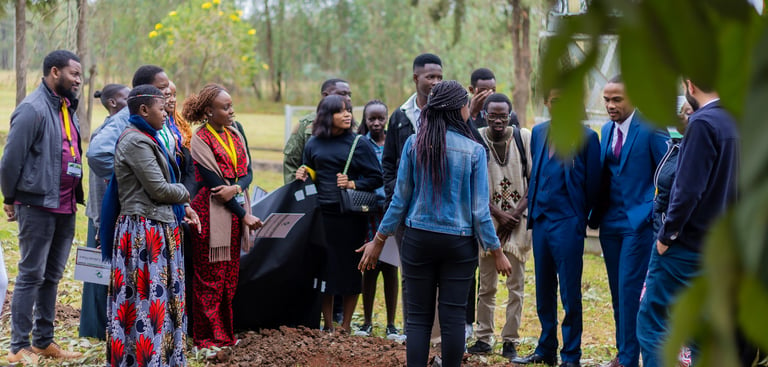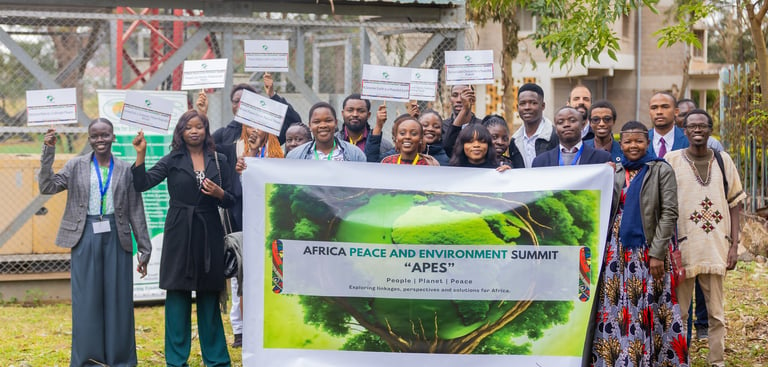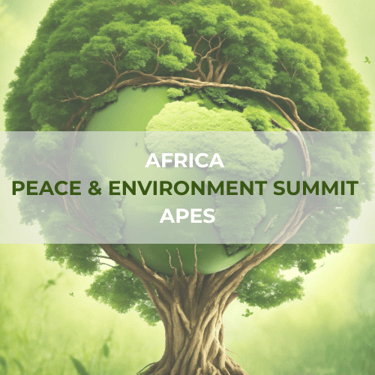Background
Communities throughout Africa are a testament to innovation, resilience and hope working towards the realisation of the Africa Agenda 2063 vision of An integrated, prosperous, and peaceful Africa, driven by its citizens and representing a dynamic force in the global arena. At the same time, communities across the continent are grappling with the complex interplay between peace and the environment, as competition over resource sharing, environmental stressors, and social tensions heighten the existing challenges.
As highlighted in the Intergovernmental Panel on Climate Change (IPCC) 2023 Summary for Policymakers, human-caused climate change is already affecting many, with weather and climate extremes in every region across the globe leading to widespread impacts and related losses and damages to nature and people. Africa is one of the lowest contributors to climate change yet it is experiencing severe and widespread impacts attributable to human-induced climate change, including biodiversity loss, water shortages, reduced food production, loss of lives and reduced economic growth.
As environmental degradation accelerates, the availability of essential resources that sustain lives and livelihoods diminishes, propelling communities into competition for the remaining resources. This heightened competition breeds political instability, social unrest and violent conflict leading to deteriorating peace.
The IPCC AR6 Report estimates that Africa incurred annual losses of $7 billion due to climate change between 2010 and 2019. This figure could rise to $50 billion by 2040, with the increasing proportion of global warming at 2°C and 3°C exacerbating already existing multi-dimensional socioeconomic, political, and environmental vulnerabilities. Additionally, the rate of population increase in Africa further strains limited resources, heightening the urgency for adaptation and mitigation strategies to safeguard livelihoods, ecosystems, and future generations.
Recognising the interconnectedness between peace and environment, communities across the African continent are engaged in peacebuilding and environmental sustainability efforts drawing on traditional knowledge, local resources and indigenous practices to build a sustainable future. It is therefore important to foster meaningful dialogue to identify context-specific solutions that resonate with the local realities. Through collaboration and collective action amongst the peacebuilders, environmentalists and other stakeholders we can develop an integrated approach to peace and environmental sustainability.
Area Of Focus
Linking peace & environmental sustainability to African Development Goals and Governance.
Perspectives on the impact of Natural Resource Management models on Peace & Environmental sustainability.
Impacts of Climate Change in Africa on Peace and Environmental Sustainability.
Mobilizing capacities of actors for action in peace and environmental sustainability.




